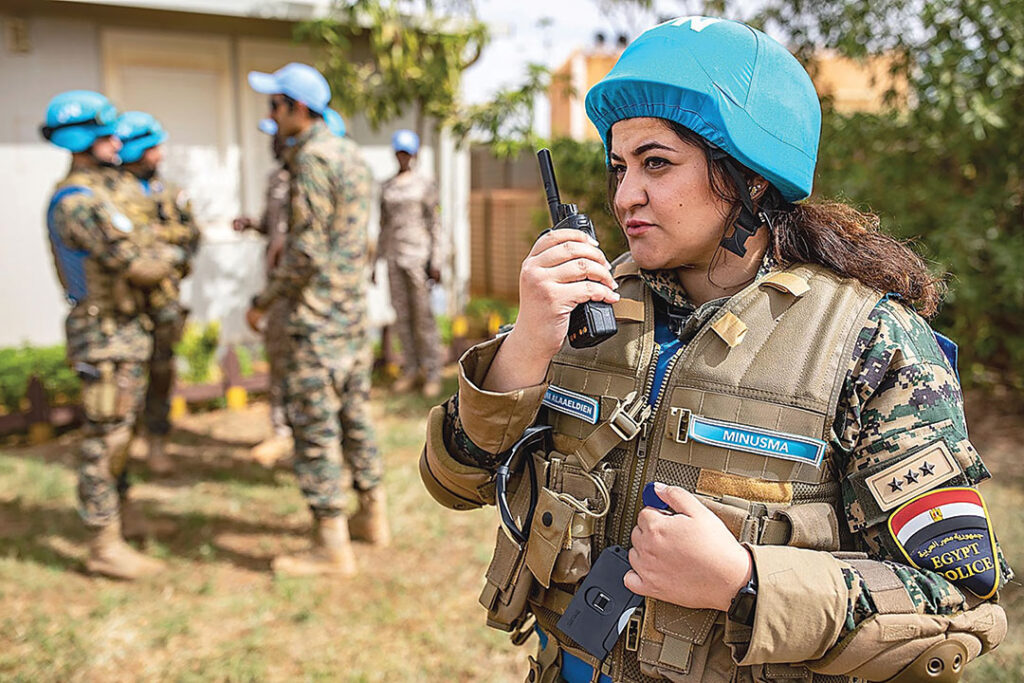U.N. PEACEKEEPING
The Egyptian Formed Police Unit, deployed in Douentza, Mali, as part of the U.N. mission (MINUSMA) in 2017, set up three teams to tackle the threat of improvised explosive devices (IED). One of them was composed entirely of female police officers and was the first such search and detect team deployed in a U.N. peace operation.
The teams are trained to identify IEDs so that ordnance disposal experts can safely remove them.
The Douentza team worked close to dirt roads used by civilians who often are targeted by terrorists and armed groups. From 2020 to 2021, the country recorded the second-largest increase in terrorism-related civilian and peacekeeper deaths, according to the Global Terrorism Index. The U.N. Security Council voted to end the mission, and most personnel were expected to leave by the end of 2023.
Once a task order is released, every second counts. If the team does not find an IED or land mine, then the safety and security of a convoy can be at risk. Maj. Doaa Moussa, team commander, is aware of this: “This team must protect the peacekeepers, but also the civilians. It’s a heavy responsibility.”
As team members moved to the armory to pick up weapons and detection equipment, Lt. Col. Ibrahim Rady gave final instructions before going to the affected site. Once they arrived, the team identified and defused a land mine.
This time, it was an exercise to ensure that the team is prepared for real risks. Since 2013, the number of attacks on peacekeepers in Mali has grown six times, from two IED-related incidents in October 2013 to 12 in 2022. There were 19 incidents in 2014 and 15 in 2021.
Since its deployment in 2013, MINUSMA lost 162 military peacekeepers to land mines and other hostile acts. Troops and convoys that frequently moved through the Malian territory to protect civilians often were targets of IEDs, particularly in northern and central regions.
“We are very proud to be the first women to be trained on IED threat mitigation,” said Capt. Rana Ghourab. “It is a tool that will help us a lot in empowering women in Egypt and the Middle East. This experience will also help us show that [women] can do anything that [men] can do.”

